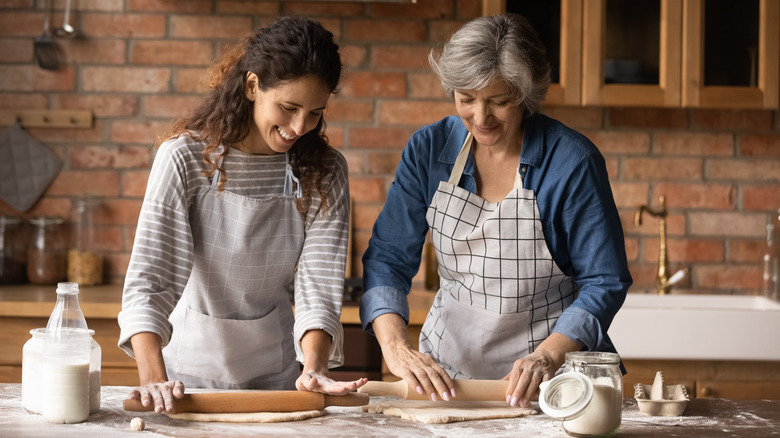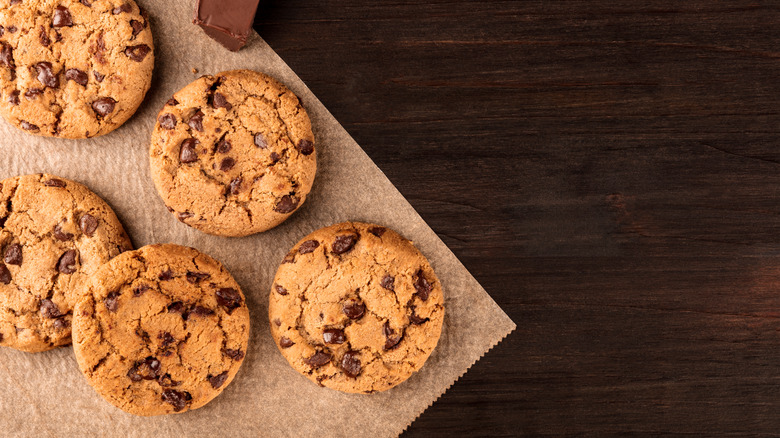Why You Shouldn't Always Swap Silicone Mats For Parchment Paper
If you love to bake, you know that there are a million ways to get the job done, from Dutch ovens and bread pans to parchment paper, silicone mats, and plain old baking sheets. Each tool has its own pros and cons, and experienced bakers eventually come to be quite intuitive about which to use. For example, as Serious Eats notes, you probably wouldn't bake cookies in a Dutch oven because they need to release moisture and require more direct heat. You also likely aren't going to make a sourdough loaf in a bread pan, because it needs room to rise and likes to have a lid so it can steam, according to King Arthur Baking.
When it comes to flat surfaces, parchment paper and silicone mats can seem interchangeable. But once you consider the individual qualities of each in light of what you're trying to bake, you'll find that sometimes, one might be a little better suited to your task.
Silicone mats and parchment paper have different thicknesses and temperature caps
Both silicone mats and parchment paper use food-grade silicone, according to POPSUGAR, but otherwise have quite different attributes. First, silicone mats are often thicker than parchment paper, which adds a layer of insulation for the pan and makes it so that the food isn't getting as much direct heat. For roasting vegetables, this may not be as ideal — especially if you want your veggies to brown. But for pastries, more of a buffer may be preferred. Additionally, parchment paper is disposable and can be cut to size, which means it's more malleable to different baking sheets you might use.
With regards to temperature, silicone mats like the Silpat can handle up to 500 degrees Fahrenheit, while parchment paper often warns against baking over 425 degrees, per Reynolds Brands. However, as suggested by Cook's Illustrated, heating parchment paper up to 450 degrees "does not release noxious chemicals." The paper won't become toxic. Even if the parchment paper breaks down and becomes brittle, it still won't harm you (though it may make a bigger mess for you to clean up).

